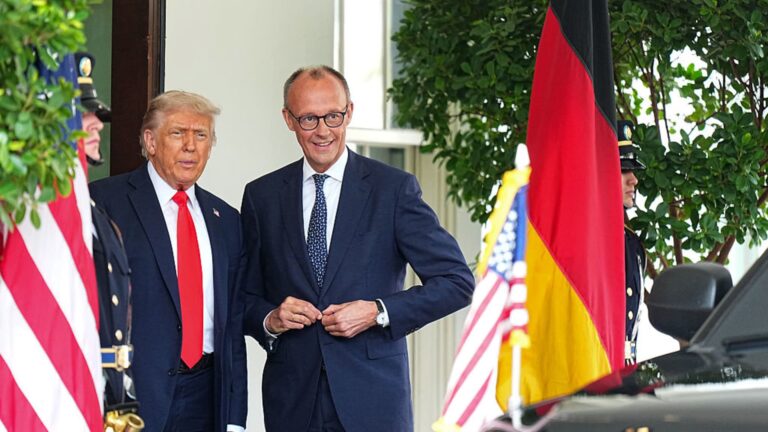German Chancellor Friedrich Merz is looking to redefine Germany’s voice in Europe and build a relationship with U.S. President Donald Trump — who many of Merz’s European colleagues do not see eye to eye with. The historically EU-friendly Merz, a former member of the European Parliament, now has a long list of complaints about the bloc. This has included objections to an increase in the EU’s new long-term budget that was proposed last month, as well as calling the bloc out for sluggishness and complex bureaucracy. Germany was also among the louder critics of the EU-U.S. trade agreement. Merz’s sharp tone is noticeable — especially in comparison to his predecessor Olaf Scholz, who generally struck a more mellow approach. But it does not necessarily mean that the German Chancellor’s overall position on Europe has changed, Jörn Fleck, senior director at the Europe Center at the Atlantic Council, told CNBC. “Merz’s political vita is a pro-European one, and that hasn’t changed. But Merz’s pro-EU politics have always been informed by and in creative tension with his traditional conservative values — a fiscal, small government, big on security conservatism,” he said. The chancellor’s jabs towards the EU reflect this political tension, as well as the domestic political issues Merz is battling with, Fleck said. The German leader’s grievances, particularly with EU red tape, often echoes domestic voter sentiment. It’s Merz’ way of being sensitive to industry leaders who are advocating for less Brussels-bureaucracy, according to Sudha David-Wilp, vice president of external relations and senior fellow at The German Marshall Fund of the United States. In July, Merz told reporters during a press conference that the EU had become “too regulation-intensive” and at times “too slow to react,” according to a CNBC translation. His tone will also be informed by his electorate which is “not fundamentally critical of Europe but is nevertheless conservative,” said Henning Vöpel, CEO of the Centres for European Policy Network. A new German style? Merz is likely also trying to establish a “new” German tone and tweak the country’s position within the EU, experts told CNBC. “After the last German government, which often abstained on important European policy issues – often referred to as the ‘German vote’ – he wants to claim a new leadership role for Germany and therefore take a more brisk and critical stance,” Vöpel said. The Atlantic Council’s Fleck shared a similar view, saying Merz is under pressure to stand his ground in instances where EU issues like fiscal plans could impact German domestic politics or become a risk to his agenda at home. “Beyond that, Merz promised a new clarity when it comes to communicating Germany’s positions in Europe,” he added. “For most, that clarity will be a welcome change of tone.” However, while Berlin is now coming to Brussels with a new communication style, Germany’s view on the bloc has not fundamentally changed according to Fleck. “His statements, the makeup of his new team, and the reportedly close dialogue with Commission President Ursula von der Leyen hardly suggest a major shift,” he said. German-U.S. relationship building The sharper tone may also be serving a transatlantic purpose, according to Vöpel. “By adopting a critical tone towards the EU, Merz can appease Trump, who sees the EU as an attack on the USA,” he said. Merz and Trump appear to be building a solid relationship, setting the German Chancellor apart from many of his counterparts in the EU which have not yet been able to do so. June’s Merz-Trump meeting in the Oval Office was broadly seen as a quiet win for the German leader, and more recently he was one of the key instigators of U.S.-European talks ahead of Trump’s meeting with Russian President Vladimir Putin. The German Marshall Fund’s David-Wilp explained that “Merz is under no illusion that Germany and Europe need the United States, because a smooth working relationship with the White House is important for the continent’s stability and prosperity.” Instead of looking nostalgically to the past, his priority is to continue open communication and keep the transatlantic relationship constructive, she said. Importantly, Merz also does not appear to see any conflicts or trade-offs in his pro-EU and pro-Atlanticist positions, Fleck added. “Merz seems to have found the right balance in standing his ground on priority issues and leveraging European coordination while not getting drawn into unnecessary rhetorical skirmishes with the US president,” he said.

